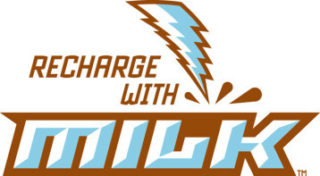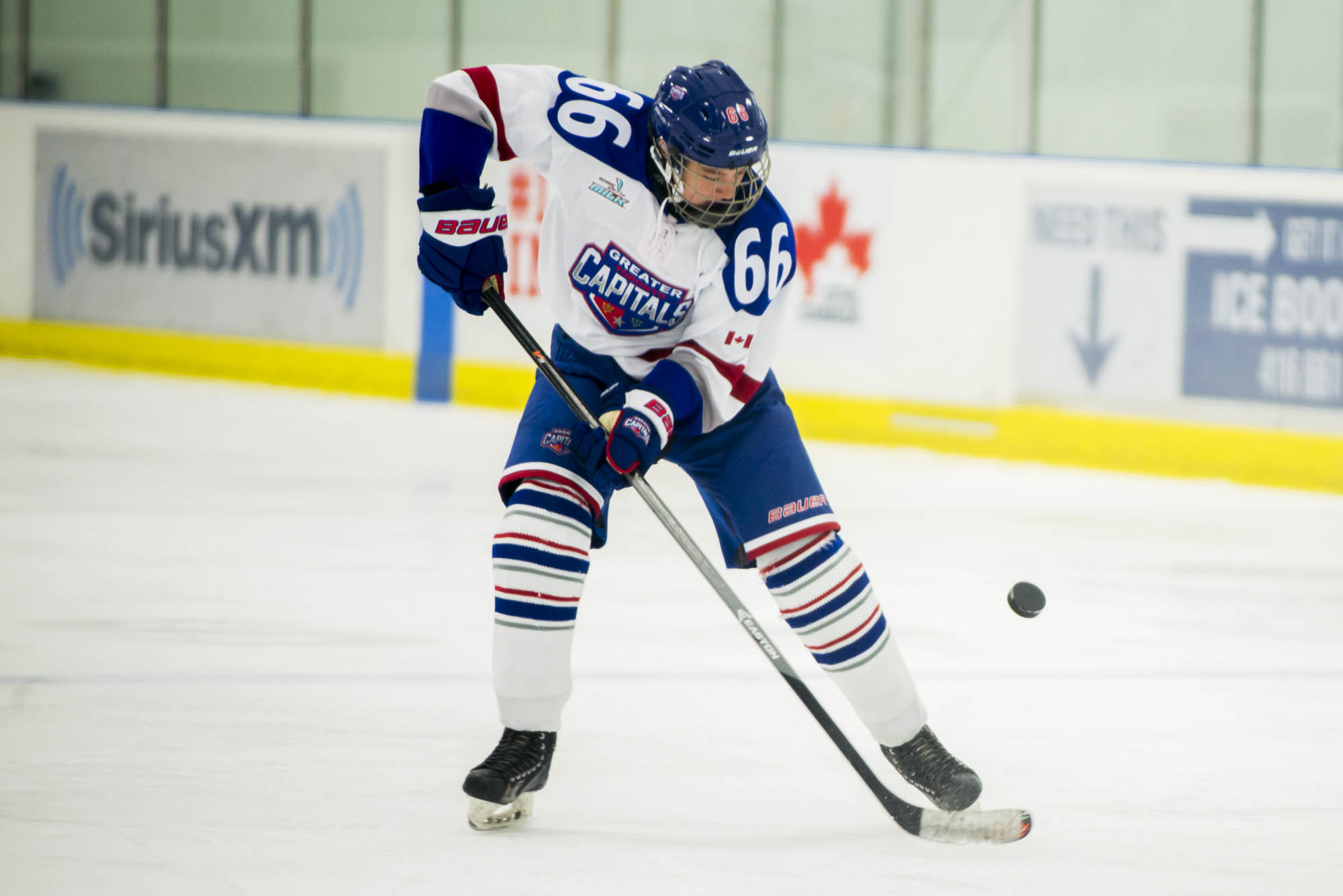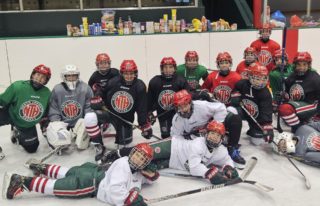Many factors work behind the scenes to help you achieve your best results during a workout. One factor that can make or break a physical performance is hydration – do it properly and your body will run like a well-oiled machine, but beware if you let your engine run dry.
DRINK UP, PERFORM BETTER
Our bodies are made up of approximately 60 per cent water, and the daily recommended fluid intake is between two and three litres per day (2.2 litres for women and 3 litres for men). That range is even higher for active individuals.
Countering fluid loss as it happens will help keep you at the top of your game.
When dehydration kicks in, you can feel tired, dizzy, and perhaps have a foggy mind – not good when you’re trying to make tape-to-tape passes or rip one-timers. You may even mistake hunger for thirst (and no one wants to have that hangry feeling on the ice). As a result, your motivated mindset disappears and your performance suffers.
Common signs that you are dehydrated include a dry or sticky mouth, not urinating throughout the day, urine that is darker yellow, headaches and muscle cramping. And it doesn’t take much –losing just two per cent of your body weight through your sweat can lead to game-changing side effects (see “Being dehydrated can lead to . . .”).
The fluid intake recommendations noted above aren’t limited to just water – general hydration guidelines also include milk, 100% vegetable/fruit juices and smoothies. How much you specifically need will depend o n your body size, your level and type of activity and the environment you are training in.
n your body size, your level and type of activity and the environment you are training in.
Drinking fluids before, during and after workouts is also key to a successful performance. Right before a workout, and when exercising for 60 minutes or less, water is likely all you need. That said, you may need to consider a sports drink when exercising for 90 minutes or more, especially if you’re training at a high intensity and/or in hot temperatures.
A simple way of checking your hydration status is to monitor urine output. Look for clear or pale yellow and sufficient volume throughout the day. When exercising, weigh yourself before and after your workout – rehydrate with 1.25 to 1.5 litres of fluid for every kilogram of body weight lost*.
*According to a February 2016 publication by the Dietitians of Canada, the Academy of Nutrition and Dietetics and the American College of Sports Medicine.
KEEP THE FLUIDS FLOWING
Is there a magic number for how much fluid you should consume during a workout? Unfortunately not, since our bodies vary so much and fluid intake also depends on the type of exercise you are doing. The good news, though, is that there are a few tricks that can help you gauge how much you should drink when you’re in the gym or on the ice.
Follow these tips to stay out of the dehydration deep end:
Read your body language
If your workout is feeling tougher than usual, even after a pre-workout snack, you could be low on fluid. Signs of dehydration can include weakness, headaches or difficulty concentrating.
Track your bathroom breaks
Check your urine – the goal is to have a pale yellow colour and higher amounts. Dark urine in low amounts is a sign of dehydration.
Avoid cotton mouth
Drink up! Our bodies usually tell us when we need fluid, but thirst alone isn’t always an accurate gauge. Play it safe by making a hydration plan so fluid replacement is part of your training regimen.
MAKE A HYDRATION PLAN
Approach hydration like you do other areas of the sport – with pre-game, in-game and post-game routines.
Be ready for the first shift
Whenever you exercise, you’ll always be at your best if you are well-hydrated to start. So what’s the secret to success? Live by this rule of thumb: drink more fluids the day before a major event. Then on game day, give yourself about two hours to hydrate before puck drop – this will give your body time to properly process the fluids.
In-game hydration
More is always better, right? Not necessarily. It’s important to get enough water, but balance is key because an H2O overflow during an extreme workout can drop your sodium levels to harmful lows and put you at risk. If you do get waterlogged, try offsetting the negative effects with a beverage that contains sodium and potassium.
Milk to rehydrate
After the big game you will need to replace all the fluid and electrolytes lost in sweat. In addition, there are other nutrients – like carbohydrates and protein – that will help you recover. Drinking chocolate milk within 30 minutes of an intense workout can help provide the fluid, electrolytes, carbs and protein your body needs to rehydrate, refuel and recharge. It’s a great way to make tomorrow’s workout better today.






